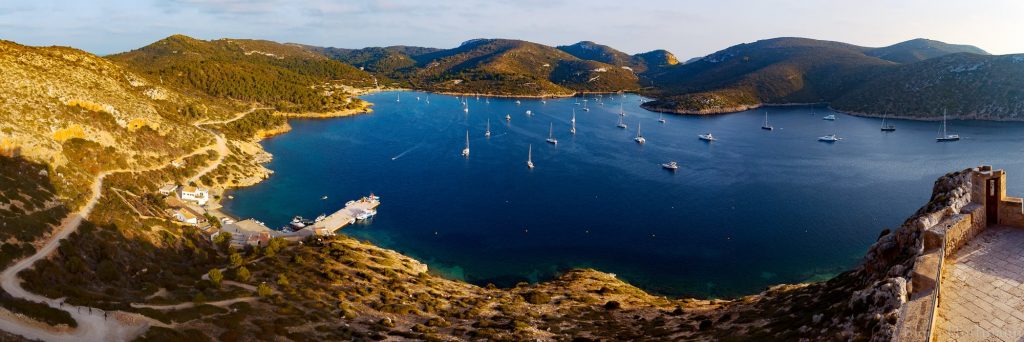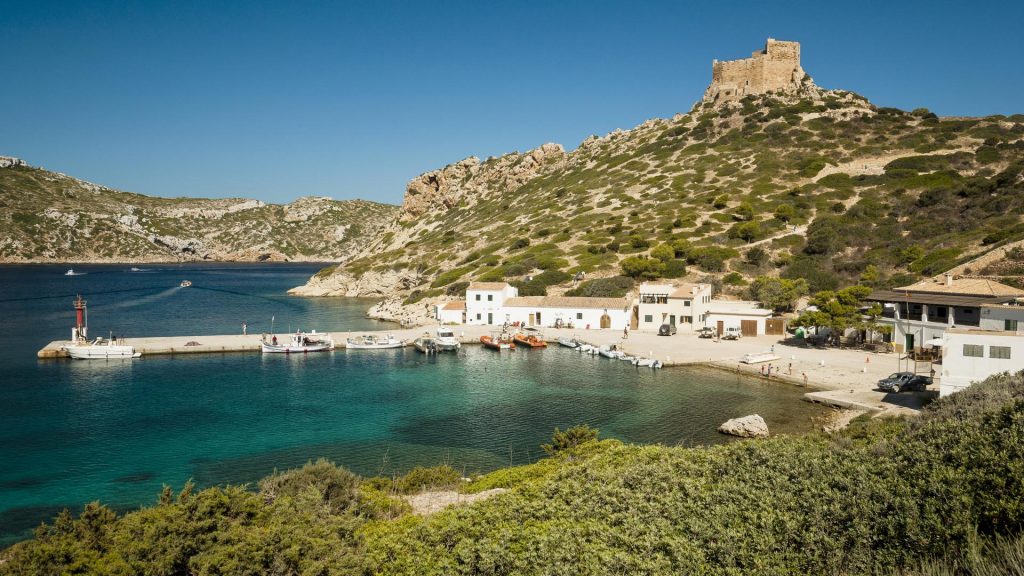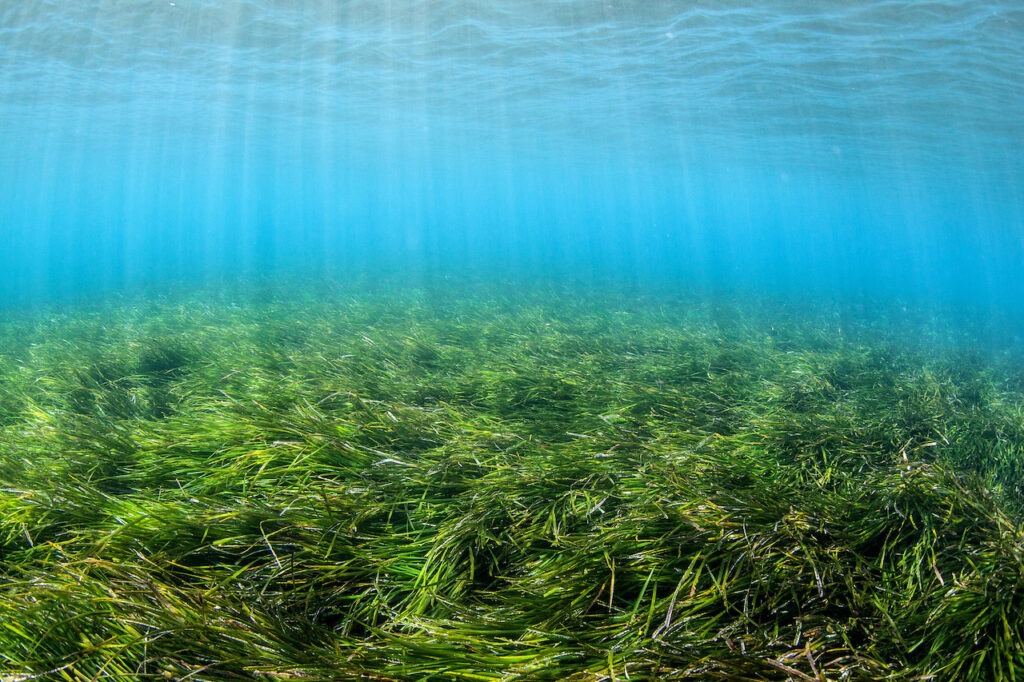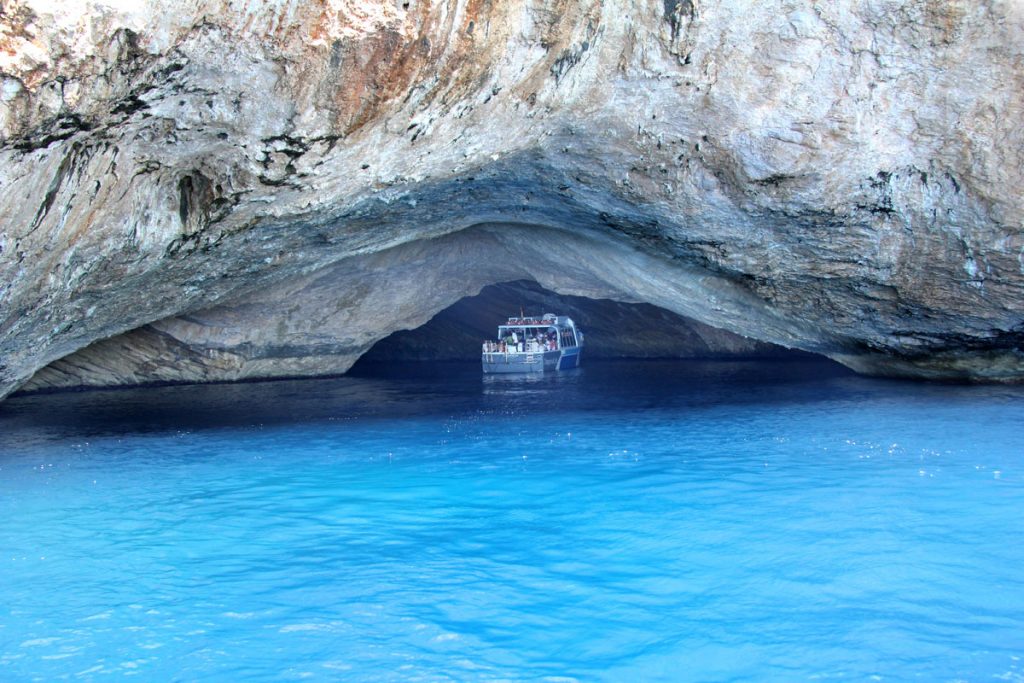Head east from Palma to the picturesque seaside town of Colonia Sant Jordi, which is the boarding point for boats to the island of Cabrera.
Belonging to an archipelago of 19 islets just ten kilometres from the southern coast of Mallorca, Cabrera, the smallest of the Balearics islands, was declared a Maritime National Park in 1991, the first in Spain.

Cabrera, meaning goat , gave the island its name ‘The Isle of Goats’ after a colony of wild goats which lived there.
Uninhabited since 1991, the island has a fascinating history. In addition to the goats and several farming families in its more recent history, the island’s castle and tower built in the 14th century was used as a hospital, a residence for the priest and a quarantine station during pandemics. During the War of Independence, many of Napoleon’s soldiers were captured and held on the island, similar to Alcatraz . An obelisk has been constructed as a monument in their honour.
After an exhilarating 40 minute ride on the passenger speed boat, you will pull into the small harbour. There is a small cafe, toilets and an office for the environment agency, but your eyes will immediately be drawn to the pristine white beaches.
Hurl yourself into the clear crystal waters and enjoy the beauty of the island.

This is a landscape that has remained unchanged for centuries. With National Park status, the islands have been allowed to flourish. An abundance of seabirds and with the greatest diversity of fish in the Mediterranean Sea, you will hopefully be lucky enough to spot one or two rare birds or see some dolphins on your trip.
Cabrera boasts some of the most spectacularly clear waters in the Balearics as a result of the Posidonia seagrasses which are called “the lungs of the Mediterranean”. Posidonia is incredibly effective at filtering the water and producing oxygen, hence the clarity of the waters.

Cabrera is open to overnight guests – 12 rooms for up to 24 visitors – with a maximum one-night stay so it is essential to prebook. The hostel-style accommodation is in the former Nepoleonic barracks.
If you do stay overnight, make your way over to the 19th-century red and white lighthouse of n’Ensaiola. At 102 metres above sea level, it offers panoramic views. A two hour hike from the harbour. Fall asleep to the sound of the sea, wake to birdsong and be the first on the beach.
On your return journey, the boats stop at The Blue Cave. Famous for its crystal clear waters which are lit in a magical way by the rays of the sun creating an incandescent blue, if there is time, you may even be able to swim in the cave.

Arriving back to Colonia Sant Jordi, you will reflect on a very special visit and remember the peace and tranquility of this unique place.
